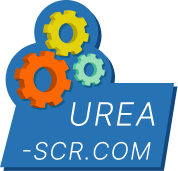Over the last few years, there have been an increasing number of people making money by trading online. Whilst this brings a wealth of opportunity for making money online, it has also given rise to record numbers of unsuspecting people falling victim to broker or Forex scams and losing vast sums of their hard earned money. Unfortunately, this can happen regardless of whether the broker in question is claiming to be regulated as scammers will stop at nothing to get people to part with their cash. Luckily, there are ways of determining whether a broker is actually regulated or not, and protecting yourself from having your funds stolen outright.
The main reason to trade with a broker that is fully licensed and regulated is that their licensing agreements usually require them to adhere to a code of conduct. This is accompanied by a membership fee that goes towards the policing of the governing body’s regulated brokers to ensure that they’re adhering to the commitments they’ve made. It also gives consumers who have traded with them an avenue for formal complaint in the event that something goes wrong. Trading with an unlicensed broker, however, doesn’t afford consumers with the same levels of protection, meaning that if you lose money due to misconduct on behalf of the broker it can be much, much more difficult to get things rectified and recover your trading losses.
A regulated broker will have a number of things in place that you can use to determine their regulated status. Usually they will carry an official mark on their website to show they’re accredited and by which regulatory body. Whilst this is an indicator, it shouldn’t be taken as truth without doing a thorough check first, especially if there are large sums of money at stake. Every regulatory body for forex brokers and licensed online traders have a website of their own which usually has a searchable database. If a broker has an accreditation badge or symbol on their website then it will also contain their registration number so that it can be verified. The best way to verify a broker’s status is to use the governing body’s searchable database of members and the broker’s ID number to determine whether their licence is legitimate. You should also double verify the information by making sure that the name of the company and all contact details are an exact match to what’s contained in the registration database, as more sophisticated scammers have been known to use the registration information of other, more reputable companies to try and pose as them. As an added security measure, it’s always a good idea to choose to trade with a registered broker who has a physical office premises in the country where you are based, and whose regulatory body is also based in the same country as you. This is for ease in the event that you do have to bring a complaint against them, as well as providing further piece of mind that your money is being sent somewhere legitimate and for legitimate purposes.
If you’re still unsure about the status of your broker and are concerned that they may be scammers, you could also contact the regulatory body directly and enquire as to their information.
